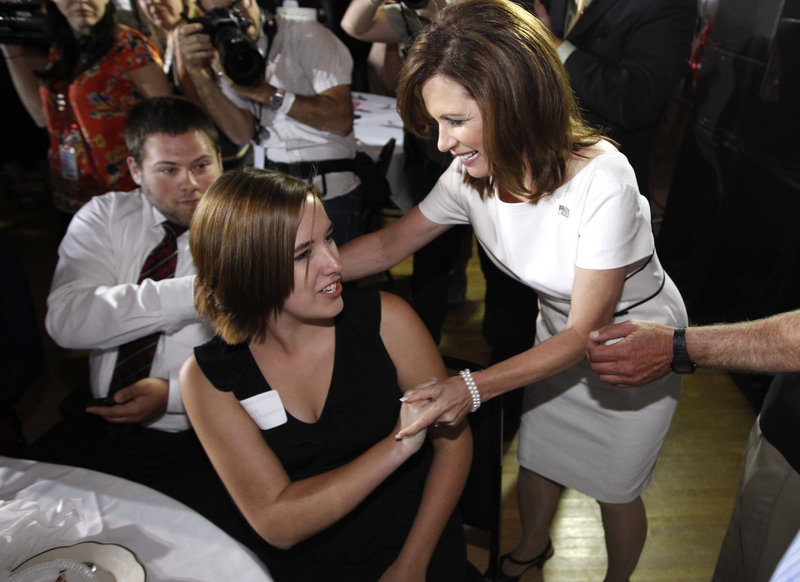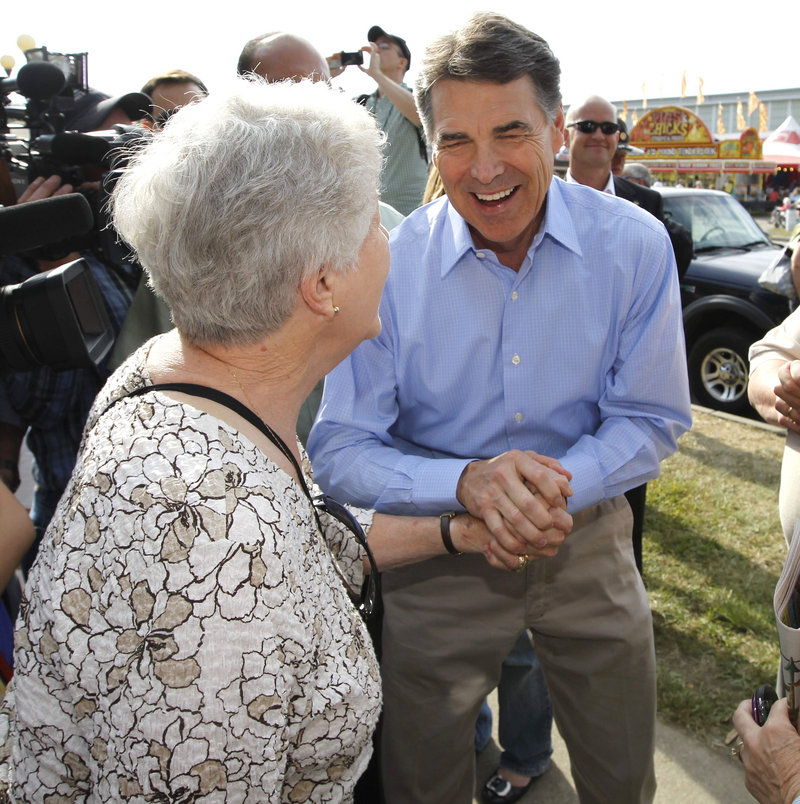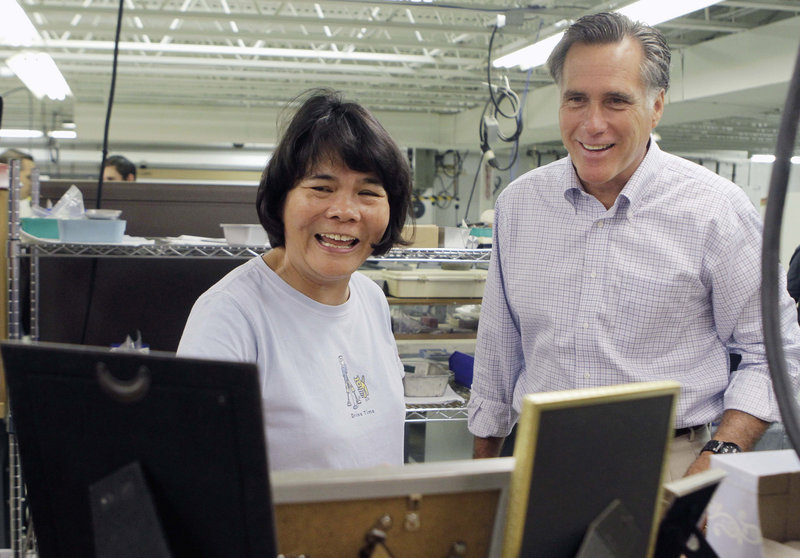DES MOINES, Iowa – Suddenly facing two serious rivals, GOP front-runner Mitt Romney declared Monday that his business background sets him apart in the presidential race and dismissed the buzz over emerging challengers as “the political winds of the day.” Rick Perry insisted no one could go “toe to toe” with him, and rising star Michele Bachmann tried to turn her Iowa straw poll victory into gains against both men.
In less than a week, the slow-to-begin race for the Republican nomination has accelerated and undergone a dramatic shift, essentially becoming a three-way contest for the chance to challenge President Obama in 2012.
ROMNEY NOW IN A RACE
Romney, who has been riding high for months while other Republicans have been struggling to emerge from the pack, now finds himself facing two significant foes in Perry, the Texas governor who formally entered the race only Saturday, and Bachmann, the Minnesota congresswoman who won the Iowa straw poll that same day.
“It’s a wide-open race,” Gov. Terry Branstad declared after a five-day stretch that saw every Republican presidential candidate show up in his state, where party caucuses kick off the GOP nomination fight next winter. While Perry entered the nomination battle, former Minnesota Gov. Tim Pawlenty, exited, further reshuffling the deck.
Over the next few months, Romney, Bachmann and Perry will try to win over a GOP electorate angry at the change Obama has brought and looking for a candidate who has the right mix of credentials to beat the incumbent Democrat.
Romney, who lost the nomination in 2008, hasn’t been able to unite warring factions of the GOP electorate since entering the race earlier this year. Social conservatives and the tea party haven’t warmed to his candidacy, and he has left some economic conservatives and Republicans in the party establishment underwhelmed.
Romney has focused heavily on New Hampshire and has downplayed his campaign in Iowa, but that may change, given that Bachmann and Perry, both of whom have support among the tea party and Christian evangelicals, are competing hard in this state where social conservatives dominate.
A FOCUS ON THE ECONOMY
By Monday, the three Republicans with the strongest chance of winning the nomination fanned out across early primary states, all looking for the upper hand just as Obama opened a three-day Midwest bus tour.
Romney, overshadowed for much of the weekend, re-emerged in Litchfield, N.H., and, during a conversation with reporters, quickly provided a window into how he would address Perry’s entry into the race.
“Understanding how the economy works by having worked in the real economy is finally essential in the White House. And I hope people recognize that,” Romney said, stressing his years of private business experience and drawing a contrast with Perry, Texas’ longest-serving governor, who never has worked in the private sector as an adult.
Even as his aides worked behind the scenes to assess the impact of Perry’s candidacy, Romney suggested a strategy shift wasn’t at hand. He said, “I’m not going to vary my speech and my vision for the American people based upon the political winds of the day.”
A bit later, he returned to his strategy of assailing Obama on the economy, saying that the president should call for Congress to return from its summer break to deal with high unemployment, home foreclosures and Wall Street turmoil.
Halfway across the country, Perry made clear that he would try to undercut Romney’s efforts to cast himself as the strongest candidate on jobs and that he would continue where Pawlenty had left off in questioning Bachmann’s accomplishments — or lack thereof — during her three terms in the U.S. House.
“I respect all the other candidates in the field, but there is no one that can stand toe to toe with us,” Perry said in an interview.
GOP HOPEFULS SEEK SEPARATION
He didn’t name either of his rivals, but he pointed to job growth in Texas and argued that Republicans needed a candidate who has achieved results.
Bachmann, for her part, prepared for a bus tour that starts today in South Carolina, a state set to hold the first primary in the South.
Since declaring her candidacy, she has shot to the top tier in GOP polling, has largely avoided mistakes, has logged two solid debate performances and has established herself as a far more serious candidate than her rivals had predicted. She’s worked to broaden her appeal beyond the tea party and evangelical wings of the party.
She earned a well-publicized boost Saturday, winning 4,823 votes, or 28 percent, of the die-hard activists who set aside a Saturday afternoon every four years for the straw polls.
Send questions/comments to the editors.





Success. Please wait for the page to reload. If the page does not reload within 5 seconds, please refresh the page.
Enter your email and password to access comments.
Hi, to comment on stories you must . This profile is in addition to your subscription and website login.
Already have a commenting profile? .
Invalid username/password.
Please check your email to confirm and complete your registration.
Only subscribers are eligible to post comments. Please subscribe or login first for digital access. Here’s why.
Use the form below to reset your password. When you've submitted your account email, we will send an email with a reset code.